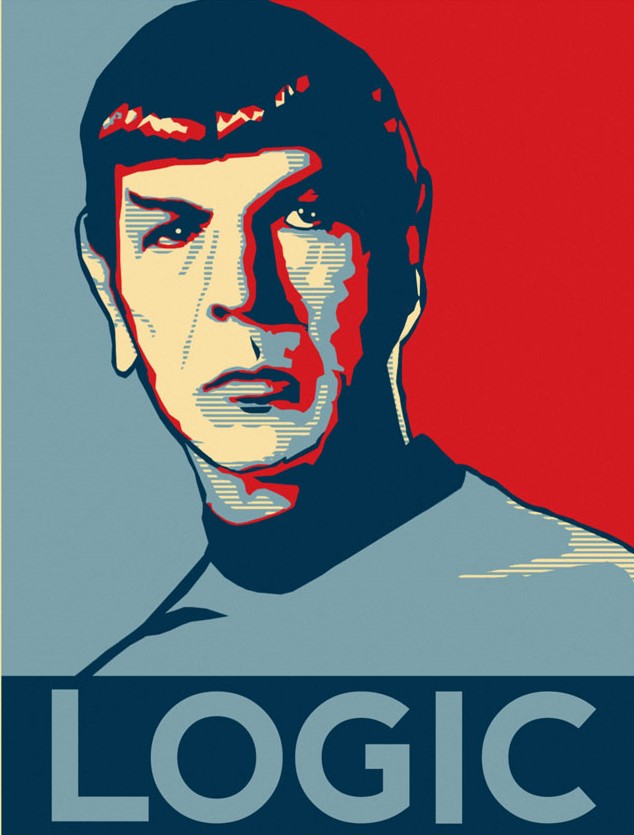
In this episode I reply to Dr. Bowman’s critique of my presentation from podcast 160, in this blog post and this one.
I concede a few points to him, but press him on some others. In particular, I press this matter of the seeming incoherence of his own Trinity theory (not of “the Trinity,” i.e. any Trinity theory – please note that I have never claimed to show that).
Here below is the argument I promise to give in this episode, in response to what (based or his responses here) I think is his own Trinity theory. I suggest that he needs to wrestle seriously with this clear and destructive little argument. Here is it, in something close to the symbols used in most university logic classes in recent times (The letters f, g, and s are singular referring terms for the Father, God, and the Son, = expresses numerical identity, – means “not,” the negation operator of formal logics, and I use & for the “and” operator, instead of the more common ^.) Just skip to the next paragraph for the same thing in English, if all these symbols give you a headache.
- f = g Premise
- s = g Premise
- g = s 2 symmetry of =
- f = s 1, 3 transitivity of =
- -(f = s) Premise
- f = s & -(f = s) 4, 5 – by the valid inference rule: P, Q therefore P & Q
Here is the same thing in English, with a bit of explanation out to the right:
- The Father just is God. Dr. Bowman commits to this
- The Son just is God. Dr. Bowman commits to this
- God just is the Son. Follows from 2 because = is symmetrical, so for any a and b, a = b and only if b = a.
- The Father just is the Son. Follows from 1 and 3 because = is transitive, like > or <. So, if the Father just is God (1) and God just is the Son (3), then the Father just is the Son. (4)
- It is not the case that the Father just is the Son. Dr. Bowman is (implicitly) committed to this by his belief that the Father and Son have differed from one another. The indiscernibility of identicals (aka the distinctness of discernibles) as explained here is a self-evident and necessary truth.
- The Father just is the Son and it is not the case that the Father just is the Son. From 4 and 5. It is always a valid step, when the argument has a premise P and another premise Q, to infer that P & Q.

Comment: 6 is a contradiction of the form P & -P (that is, P and not-P). This shows that not all of 1-5 are true. But 3 and 4 are conclusions, properly inferred from what went before. So then one of these premises must be false: 1, 2, 5.
5 is undeniable, given that the distinctness of discernibles is self-evident, and that given NT claims (or just any Trinity theory!) there are simultaneous (or eternal) differences between the Father and the Son.
This leaves us with 1 and 2.
But 1 can’t be denied by the Christian; it is repeatedly and clearly taught in the NT.
2 is all that’s left; a Christian must deny 2, for it is never taught in scripture, and its falsity is clearly implied and always assumed in it. This is my way out of the argument: I deny 2. (It is a further question whether the Son is in some sense “divine.”)
Does denying 2 mean one can’t be a trinitarian? Interestingly, no! It just means that you must leave the ranks of confused “Jesus is God” apologists, since now you know that Jesus and God should not be confused for one another!
It seems to me that if you work carefully through this argument, and somehow convince yourself that the Father and the Son are each numerically one with God, but not with each other, then you show yourself to be someone who thinks he is not subject to NT teaching and/or someone who thinks he is not subject to reason. You’re throwing out at least one of two crucial sources of truth: clear scriptural teaching, or common sense. Don’t do it!

If you are a trinitarian apologist, what is your response to the argument above?
Thanks to Dr. Bowman for this thoughtful exchange of views. Whenever he is able, I would ask him to respond to the argument above, saying which premise he denies and why.
Links for this episode:
- Works by Dale Tuggy @ PhilPapers
- Bowman, “Dale Tuggy and the Biblical Basis of the Trinity, Part 1: Are Essential Elements Missing?“
- Bowman, “Dale Tuggy and the Biblical Basis of the Trinity, Part 2: Is the Doctrine of the Trinity Incoherent?“
- podcast 260 – How to Argue that the Bible is Trinitarian
- Bowman “The Biblical Basis of the Doctrine of the Trinity”
- podcast 107 – Dr. Robert M. Bowman Jr. on triadic New Testament passages – part 1
- podcast 108 – Dr. Robert M. Bowman Jr. on triadic New Testament passages – part 2
- podcast 125 – Dr. Robert M. Bowman’s “What about This View?”
- The Westminster Confession
- GARBC Articles of Faith (Dr. Bowman’s denomination)
- Stanford Encyclopedia of Philosophy, “Trinity“
- Tuggy, What is the Trinity?
- podcast 30 – The Council of Nicea
- The Orthodox Formulas 2: The Council of Constantinople (381)
- identity
- On Numerical Sameness / Identity / “Absolute” Identity
- A formulation of Leibniz’s Law / the Indiscernibility of Identicals
- Simplifying the Indiscernibility of Identicals
- podcast 124 – a challenge to “Jesus is God” apologists
- the apologetics blind-spot on numerical identity
- podcast 248 – How Trinity theories conflict with the Bible
- This week’s thinking music is (the second half of) “Kalte Ohren” by Alex.